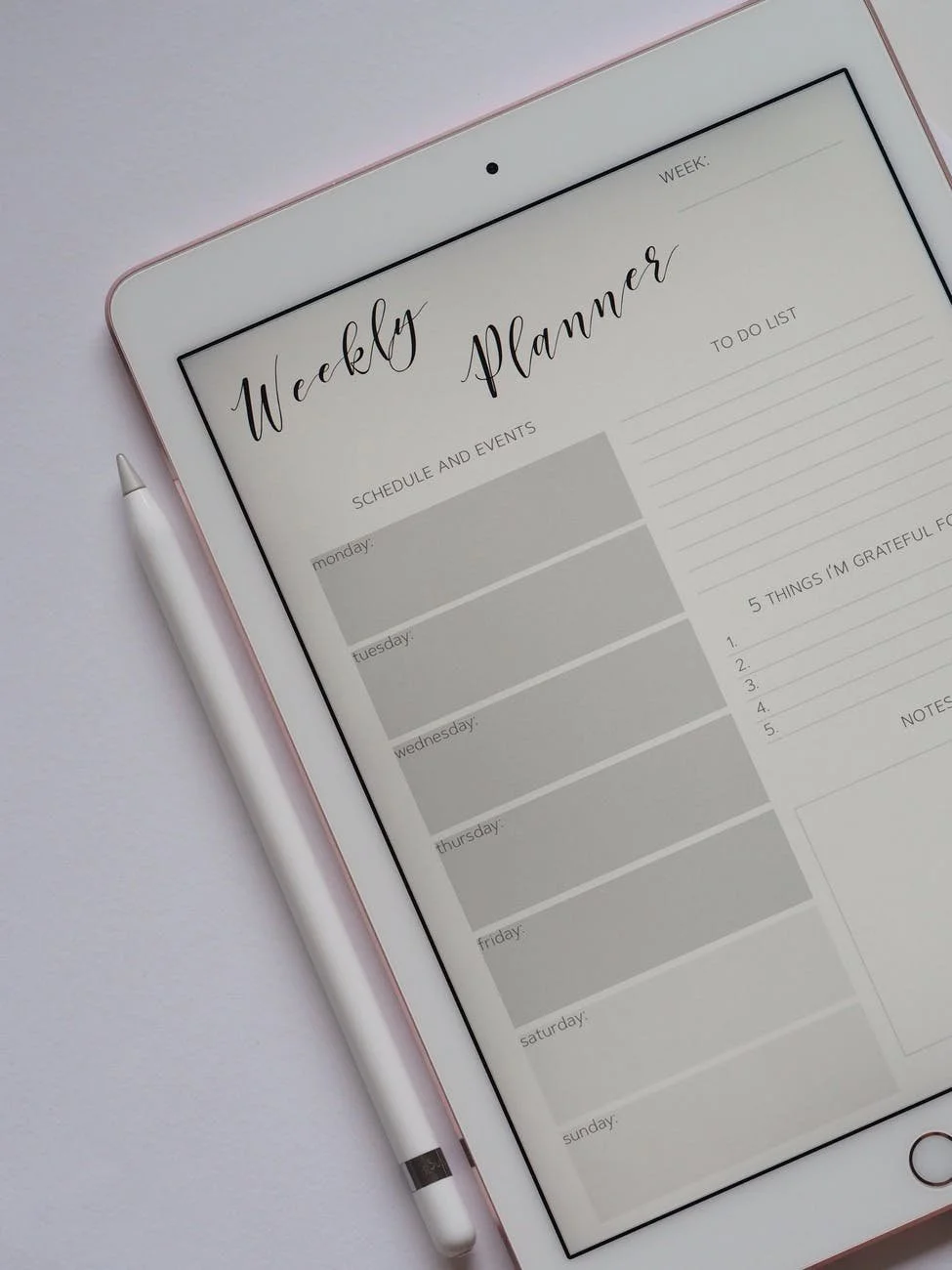5 Things I Wish I Would Have Done in the Third Trimester
(That Have Nothing to Do with a Perfect Nursery)
There are so many transitions that come after baby. Most of us prepare for birth, but not always for what comes after. Looking back, these are five things I wish I had done in the third trimester that had nothing to do with nursery décor or cute onesies.
If you’re here because you grabbed our Postpartum Planning Checklist, this is the kind of practical, real-life prep I want you to think about. Not just the stuff, but the systems, conversations, and support that help you actually feel ready.
1. Created Stations (For Me and Baby)
I spent so much time washing baby clothes and organizing drawers. But the things I actually needed most in the early days? I didn’t touch them until I was bleeding, exhausted, and squatting over a drawer mid-contraction.
What I wish I had done was make stations—intentional areas stocked with everything I’d need in arm’s reach.
Baby Stations
I suggest two stations for the baby:
Feeding Station: Include burp cloths, water bottle, nipple cream, snacks, nursing pads, formula/bottle gear, etc.
Diaper + Changing Station: Think rollable IKEA cart—diapers, wipes, extra onesie, diaper cream, hand sanitizer.
Keep these stocked on every level of your house (if you have stairs), or in a central spot where you spend the most time.
Mom Recovery Stations
Here’s where I really missed the mark:
Bathroom Recovery Station: Stock pads, disposable underwear, peri bottle, ice packs, witch hazel, aloe. Put it right there by the toilet—no waddling to the closet necessary.
Nap Trap Basket: Water, snacks, chapstick (non-negotiable), a phone charger, maybe a book or journal. Anything you might want when you're trapped under a sleeping baby.
2. Discussed Boundaries Before Baby Arrived
I didn’t think about visitor boundaries until the doorbell was ringing and my boobs were leaking. I wish I had prepped for this and had my partner on the same page.
Discuss:
Who can visit—and when?
What are quiet hours or "do not disturb" times?
Are visits baby-focused or support-focused?
Do you want guests holding baby or helping you?
This isn’t about being rude. It’s about protecting your rest, recovery, and sanity.
Want more help here? Read: Overcoming Misunderstandings and Resentment as New Parents
3. Learned About the Mental + Physical Changes I’d Go Through
Everyone talks about preparing for labor. But postpartum changes, especially mental and emotional ones? Not nearly enough people prepare for that.
Physically, Here’s What I Wish I Had Known:
Your pelvic floor is a big deal (even if you had a belly birth).
Your uterus contracts for weeks after delivery.
Hormonal shifts can make you feel like a stranger in your own body.
Mentally + Emotionally:
Your brain literally changes during pregnancy and postpartum. You’re rewiring, similar to adolescence. This is normal, but it’s rarely discussed.
Knowing this could have spared me the shame spiral of wondering: Why am I so sensitive? Why do I feel so unlike myself?
This is called matrescence and it’s real. You are not broken—you’re becoming.
Related: Why You Don’t Feel Like Yourself After Baby
4. Made a Loose Recovery Schedule
Recovery doesn’t mean lying on the couch in total peace. But it does mean creating space to heal.
Looking back, I wish I had sketched a loose recovery plan:
Block out visitor-free windows.
Set realistic expectations for outings or “getting back to normal.”
Protect one nap per day just for you.
Choose a friend or partner to help enforce your plan.
I thought I had to be "on" all the time. Instead, I wish I had made rest sacred.
5. Prepared Our Relationship for the Shift
This one surprised me most. I thought we were solid. But the transition to parenthood changed everything.
Our communication became snappy.
Our connection felt distant.
Intimacy was confusing and emotional.
We both felt unseen—but didn’t know how to say it.
I didn’t know we needed to plan for this shift. Now, I help couples do just that.
If you want to protect your emotional connection, avoid resentment, and keep your team strong, check out our 6-week coaching experience for expecting couples. We talk about:
Emotional connection
Sharing the mental load
Navigating postpartum intimacy
Identity changes
And communication styles that help you feel heard
Also see: Internal vs. External Processing Styles in Relationships
Bonus: Build Your Village Now
There’s no award for doing postpartum alone.
Use our free Postpartum Support Plan to build your team—whether that’s a partner, family, therapist, coach, or online circle.
Because the right support doesn’t just help you survive postpartum. It helps you actually enjoy it.
You're not behind. You're getting informed.
If you're reading this during your third trimester (or anytime before baby arrives), you're doing something powerful: You're planning for your relationship, your identity, and your emotional wellbeing, not just logistics.
And that? That will make the biggest difference of all.


